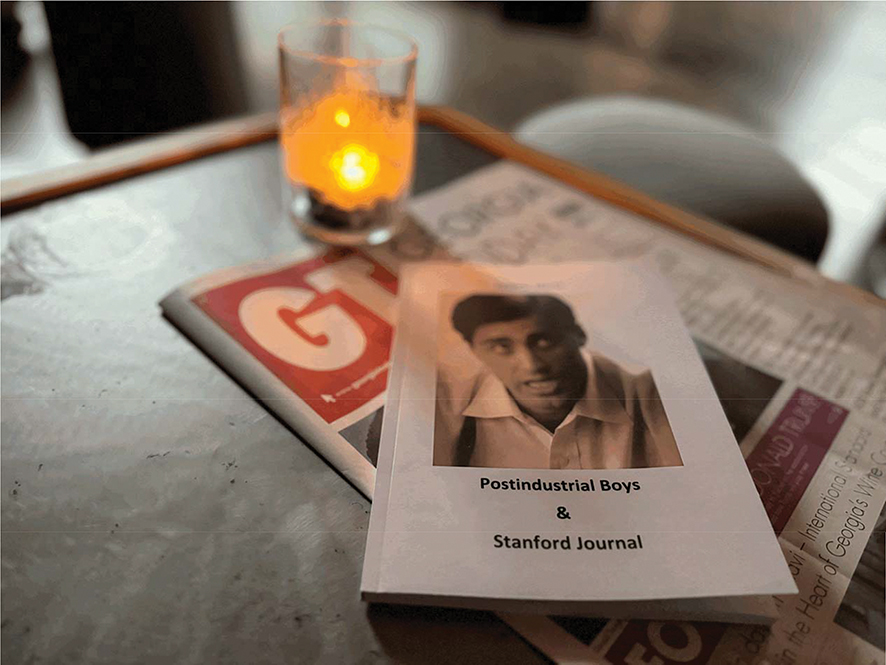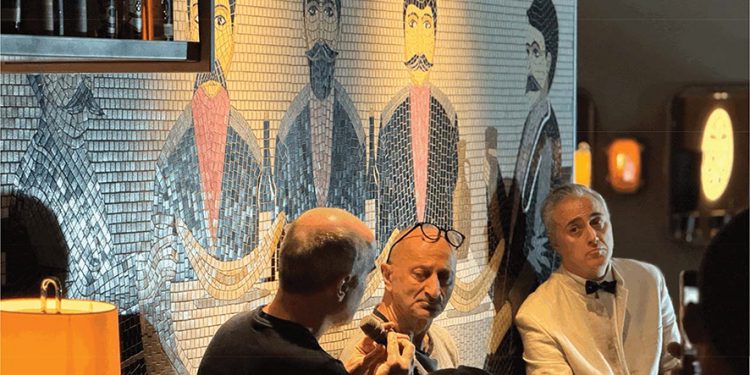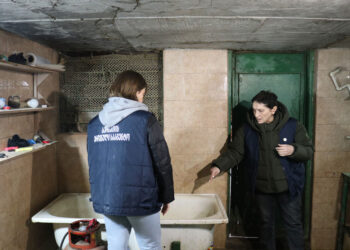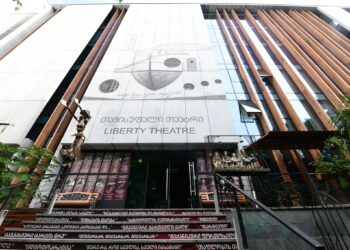On the evening of July 20, Drunken Poets Syndicate hosted the presentation of ‘Postindustrial Boys,’ a collaboration between poet and playwright Irakli Kakabadze (alias Antonin Marto) and musician and composer Gogi Dzodzuashvili. The event attracted a diverse audience, eager to witness the interplay of literature and music.
The Poetic Genesis
Postindustrial Boys originates from 1999, when Kakabadze, writing as Antonin Marto, created a poetic composition in Phoenix, Arizona. His verses, characterized by live drive, parodic naivety, and social commentary, explore the post-industrial human experience, reflecting modern alienation and a desire to reconnect with nature. Kakabadze employs an eight-syllable structure in both English and Georgian, maintaining simplicity and clarity while adding depth through light rhymes and irony.

Musical Alchemy
Gogi Dzodzuashvili’s musical composition, inspired by Kakabadze’s text, introduces soft, electronic vibrations. This collaboration enhances the poem’s social critique by providing an auditory experience that allows listeners to engage with its themes on a deeper level. The work showcases the potential of Georgian modern art to reach a global stage, with the album, available on various musical platforms, exemplifying the innovative potential of cross-disciplinary collaborations.
A Celebration of Artistic Synergy
The event took place in the setting of Drunken Poets Syndicate, a venue that reflects the bohemian spirit and historical richness of Tbilisi’s cultural scene. Attendees engaged directly with Kakabadze and Dzodzuashvili, who provided insights into their creative process and the themes underlying their work. The bilingual nature of the text Postindustrial Boys & Stanford Journal, materialized in SABA Publishing, was emphasized, highlighting its accessibility and inclusiveness. By maintaining the simple structure in both languages, Kakabadze ensured that the poem’s messages could resonate with a wider audience, facilitating cross-cultural dialogue.

Reflections on Georgian Modern Art and Contemporary Culture
The case of Postindustrial Boys illustrates the potential of Georgian modern art to engage with global audiences. The evening was a testament to the power of collaborative creativity. The combination of Kakabadze’s poetry and Dzodzuashvili’s electronic soundscapes creates an artistic expression that is reflective and forward-looking. As the event concluded, attendees left with signed copies of the book, reflecting on an evening that transcended the ordinary.
Irakli Kakabadze’s body of work is a testament to the power of literature as a tool for social change. His distinctive style, characterized by its realism, intertextuality, and engagement with social issues, makes his writing both impactful and thought-provoking. Through his novels, plays, poetry, and essays, Kakabadze not only chronicles the struggles of contemporary Georgia but also offers a vision of hope and resilience in the face of adversity. His contributions to Georgian literature and his commitment to activism have earned him a significant place in the cultural landscape of his country.
The event highlighted the innovative spirit of Kakabadze and Dzodzuashvili, whose work continues to push the boundaries of artistic expression. The evening served as a reminder of the enduring power of art to provoke thought and inspire change. In the landscape of Georgian art, Postindustrial Boys stands as a testament to creative collaboration and cultural dialogue, suggesting a future where literature and music intersect to create profound impacts.
By Ivan Nechaev














